
views
Cleansing Your Skin
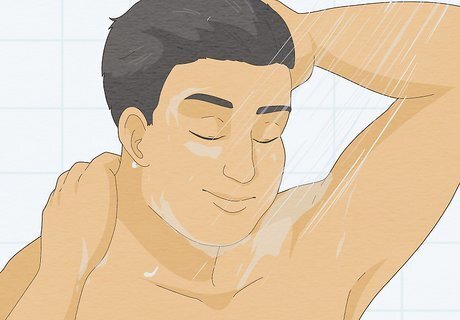
Wash your skin regularly. Cleanse the skin on your face and body regularly. This can get rid of excess dirt and oil that makes skin look dingy and may also clog pores and cause acne. Wash with a gentle cleanser that has a neutral pH. Use natural products if you prefer to wash your skin without chemicals. For example, honey and yogurt or milk can cleanse, soften, and exfoliate your skin. Cleanse with products specific to your skin type. For example, if your skin is oily, try an oil-free cleanser. If your skin is dry, a glycerine or cream-based cleanser might be best for you. Rinse with lukewarm water to prevent stripping your skin of oils and irritating it.
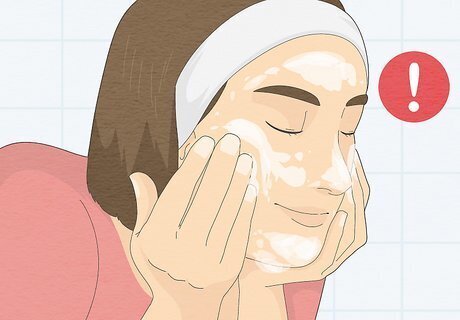
Stay away from overwashing. Not only is it important to keep your skin clean, but it’s also important to not overwash it. This may inflame your skin, strip its oil, and cause acne. Washing your face twice a day is usually enough to keep it clean and clear. If you are very active or have very oily skin, you may need to wash your skin up to three times a day.
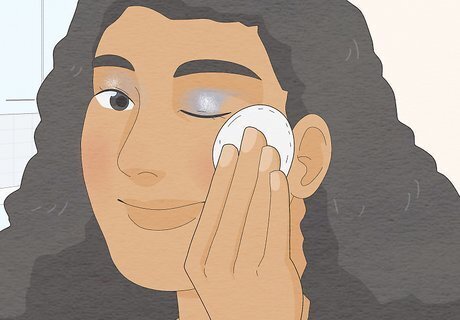
Wipe away makeup. Take off any makeup or cosmetics with make-up remover before you go to bed. This can make your cleansing routine more effective by removing a layer it might otherwise need to penetrate. Use a cotton ball or pad to wipe off your makeup. You can also get pre-moistened makeup removal wipes designed for your specific skin type. Wash your makeup applicators once a month with some soapy water. This can remove bacteria and dirt that causes acne.
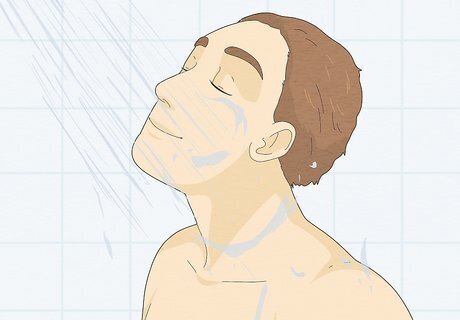
Shower after activities. Take a shower if you sweat a lot or do intense activities. Sweating can cause excess oil production and promote bacteria growth that could cause acne. Use a gentle cleanser on both your face and body. Dry off using a soft towel. Pat your skin instead of rubbing it, which could spread any bacteria or dirt you weren’t able to wash off and irritate your skin.
Promoting Clear Skin
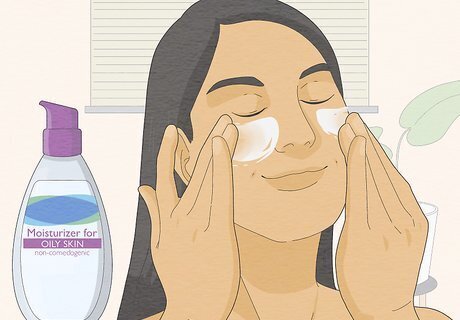
Massage moisturizer on your skin daily. Select a skin-type specific moisturizer to apply to your skin. Using a moisturizer can help prevent breakouts. Choose an oil-free and non-comedogenic moisturizer for oily skin. Products that are labeled non-comedogenic will not clog your pores. Buy a moisturizer with salicylic acid or benzoyl peroxide if you want to banish or prevent breakouts. Ask your doctor or dermatologist to help you figure out your skin type so that you can get products specifically formulated for you. Don't skip moisturizer even if you have oily skin. Moisturizing your skin actually helps prevent excess oil.
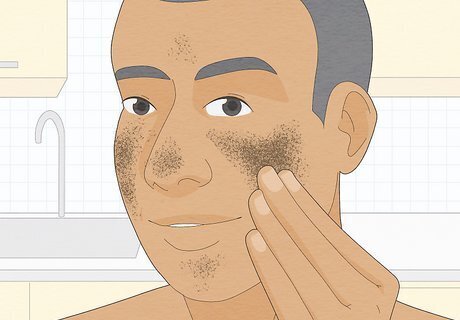
Exfoliate skin occasionally. Using an exfoliator occasionally may help remove dead skin and bacteria that cause acne. Exfoliate your skin no more than twice a week with a gentle product. Avoid exfoliating if you have any breakouts because the friction can make acne worse. Be aware that an exfoliator will only remove surface skin and not penetrate deeply enough to remove any acne. Use a gentle exfoliator made with synthetic or natural beads that are a uniform shape. Avoid exfoliators with cocoa butter, cinnamon, or coconut oil, which may cause breakouts or make them worse. Wiping your face with a damp and soft washcloth also works as a natural exfoliator.
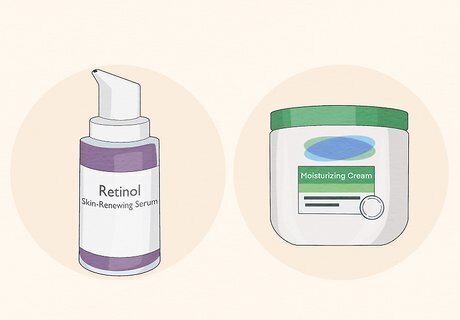
Consider a retinol. There is some evidence that using a gentle retinol gel or serum can help prevent breakouts and reduce fine lines. Ask your doctor or dermatologist to recommend a gentle and effective retinol product for your skin. Follow up any retinol use with a moisturizer so that you skin stays hydrated and is stimulated to produce collagen. Retinols work by peeling away the top layer of your skin to reveal healthier, fresher skin underneath.
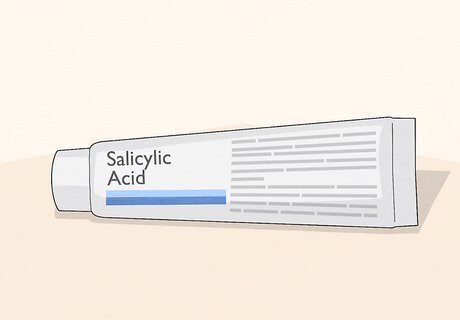
Treat excess oil production. Consider using a topical product to treat breakouts and excess oil production. There are a wide range of products that can remove and regulate oil on your skin as well as prevent breakouts. Apply an over the counter salicylic acid cream. Your doctor can prescribe or suggest one that may help clear your skin. Soak up excess oil with blotting papers applied to oily areas of your skin. Read package directions or follow your doctor’s directions to minimize the risk of irritating your skin.
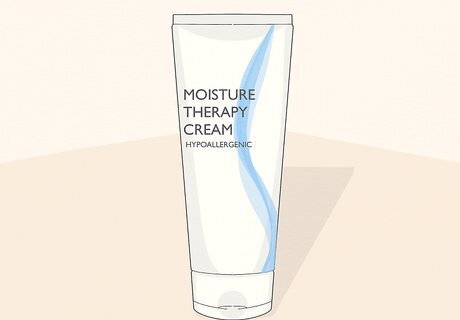
Apply allergy- and acne-tested products. Consider using products formulated to reduce the risk of allergic reactions and breakouts. The can help keep your skin clean, clear, and glowing. Look for products marked “non-comedogenic.” These have been tested specifically for acne-prone skin and won’t make current breakouts worse or cause new ones. Look for products marked “hypoallergenic.” These have been tested specifically for sensitive skin and will not inflame your skin or cause breakouts. Buy non-comedogenic and hypo-allergenic products including makeup, sunscreens, moisturizers, and cleansers.
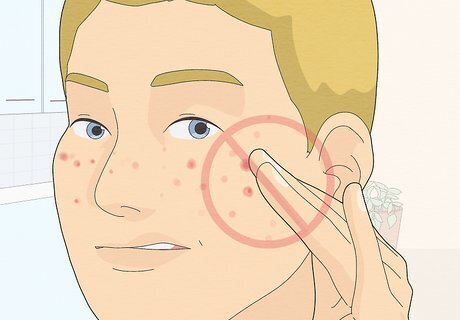
Keep your fingers away from your skin. Avoid any temptation to touch or pick at your skin. This can spread oil and bacteria and cause breakouts. Picking or popping acne may cause irritation that leads to more breakouts. Be careful when resting hands on your face or chin. This may also spread dirt and bacteria that causes breakouts.
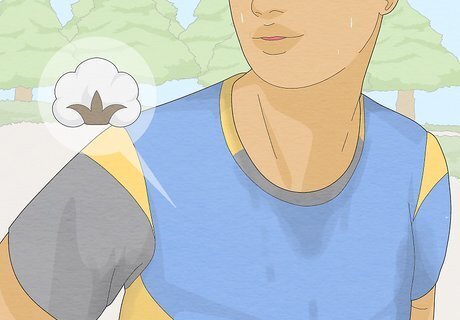
Allow your skin to breathe. Tight clothing or garments like hats can inflame your skin and cause breakouts by holding in heat and moisture. Wearing loose-fitting items to prevent breakouts. Consider wearing sweat or moisture wicking garments for sports or other vigorous activities. These may help keep sweat away from your skin and minimize the risk of breakouts. Wear natural fabrics like cotton so that they don’t irritate your skin and lead to breakouts. Wash clothing and articles like pillowcases that have contact with your skin. A mild detergent can remove dirt, oil, and bacteria that clog and irritate skin.
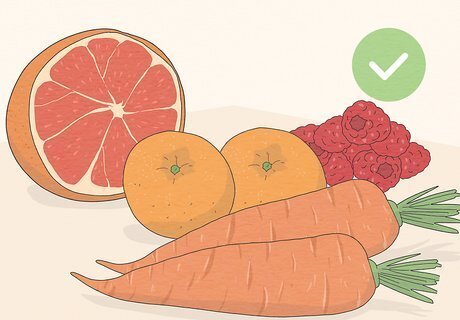
Maintain a healthy diet. There is increasing evidence that diet and acne are connected. Avoiding unhealthy and junk foods may help prevent breakouts and keep your skin clear. Diets high in fat, dairy, and sugar may cause acne. Try and not eat too many fried foods or sweets. Foods high in vitamin C, including fruits and vegetables such as raspberries and carrots, may increase cell turnover for healthier skin. Food high in essential fatty acids, such as walnuts or olive oil, may help skin cells stay hydrated. Unhealthy foods also take the place of foods you could be eating that provide the necessary vitamins and antioxidants to promote healthy skin. Part of any well-balanced diet is proper hydration. Aim to drink 8 cups of water every day to keep your body healthy, which may help your skin stay healthy.


















Comments
0 comment